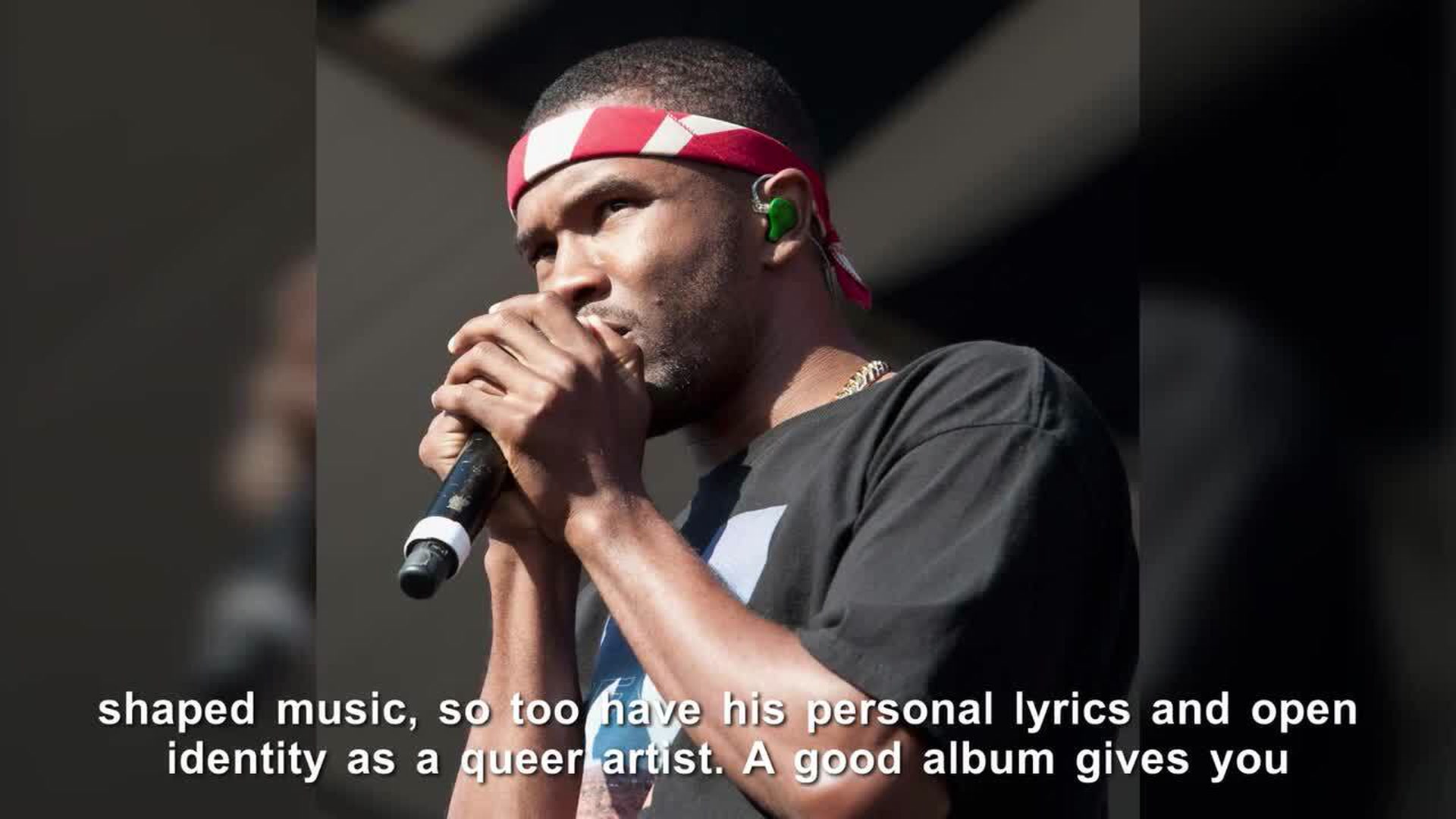A good album gives you something to bop to repeatedly for weeks, but a great album is timeless, genre-defying and ultimately changes the very fabric of the music industry. Five years ago today, Frank Ocean did all of that and more when he released his debut album Channel Orange. Much has been said about the way the 17-track epic rewrote hip-hop and paved the way for a more nuanced, experimental sound that's influenced Solange, SZA, Khalid and so many other artists.
Related | Frank Ocean's Bisexual Lyrics Were Used in Chanel's Mysterious Ad
While the sound Ocean created and curated on Channel Orange has shaped music, so too have his personal lyrics and open identity as a queer artist. Days before the LP was released, Ocean penned an open letter about his experience falling for a young man when he was a teenager.
"Most of the day I'd see him, and his smile," he wrote. "I'd hear his conversation and his silence... until it was time to sleep. Sleep I would often share with him. By the time I realized I was in love, it was malignant. It was hopeless. There was no escaping, no negotiating with the feeling. No choice. It was my first love, it changed my life [...] To my first love, I'm grateful for you. Grateful that even though it wasn't what I hoped for and even though it was never enough, it was. Some things never are. and we were. I won't forget you. I won't forget the summer. I'll remember who I was when I met you."
When Ocean uploaded that post late night on July 3, 2012, he changed everything. His letter was an introduction--a precursor of what would come when Channel Orange eventually dropped July 17. On two tracks, "Bad Religion" and "Forrest Gump," Ocean sang about a male love interest, which was a profound act in a genre still stifled by homophobia. "I can never make him love me, never make him love me," he cried out on the taxicab confessional, "Bad Religion." On "Forrest Gump," Ocean sings from a proverbial football stadium stands about the "buff and strong" Forrest Gump, who's running through his mind. "My fingertips and my lips, they burn from the cigarettes, Forrest Gump," he croons, wistfully. "You run my mind, boy. Running on my mind boy," he repeats.
In one letter and two tracks, Ocean singlehandedly ushered in a new era for queer inclusiveness in mainstream music. As Los Angeles Times music writer Gerrick D. Kennedy explained, this was "the glass ceiling moment for music. Especially black music, which has long been in desperate need of a voice like Ocean's to break the layers of homophobia." It's now been five years since Ocean's transcendent breakout album, and the effects of his sexual emancipation are as influential as ever.
In the past few months alone, rappers like iLoveMakonnen and Taylor Bennett have come out as gay and bisexual, respectively. Sure, homophobic groups, such as Migos, are still given airplay, but a new wave of LGBTQ artists have emerged to steer the genre in a new direction. Even Ocean's own music has reflected this shift--with "Nikes" off Blonde, he brought an unapologetic queerness to the song with a glitter-infused video.
On his more recent single, "Chanel," Ocean sings about his own bisexuality with the iconic, effective line, "I see both sides like Chanel." Fans and critics applauded the song's bisexual undertones, but it was by no means as earth-shattering a statement as his Tumblr coming out--the one-off track wasn't even featured on his sophomore album. But it's in the measured, muted response to Ocean's standalone song about bisexuality that hip-hop post-Channel Orange progress is most apparent.
Today, as we look back on the incredible legacy of Channel Orange, we do so in a world reshaped by Ocean's cathartic ode to unrequited, queer love.














































































